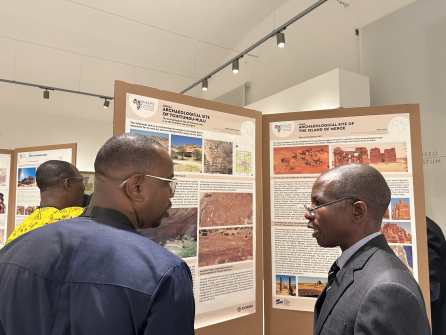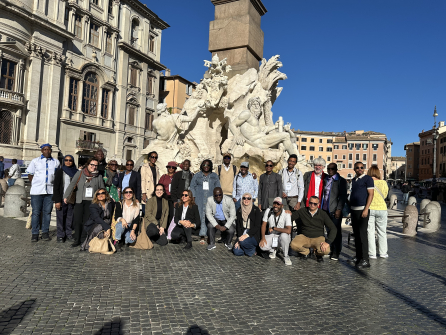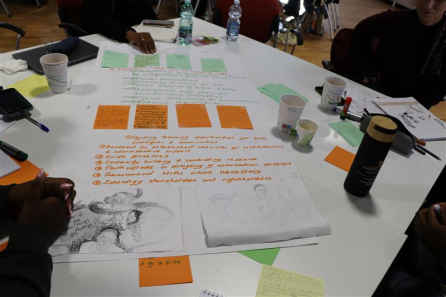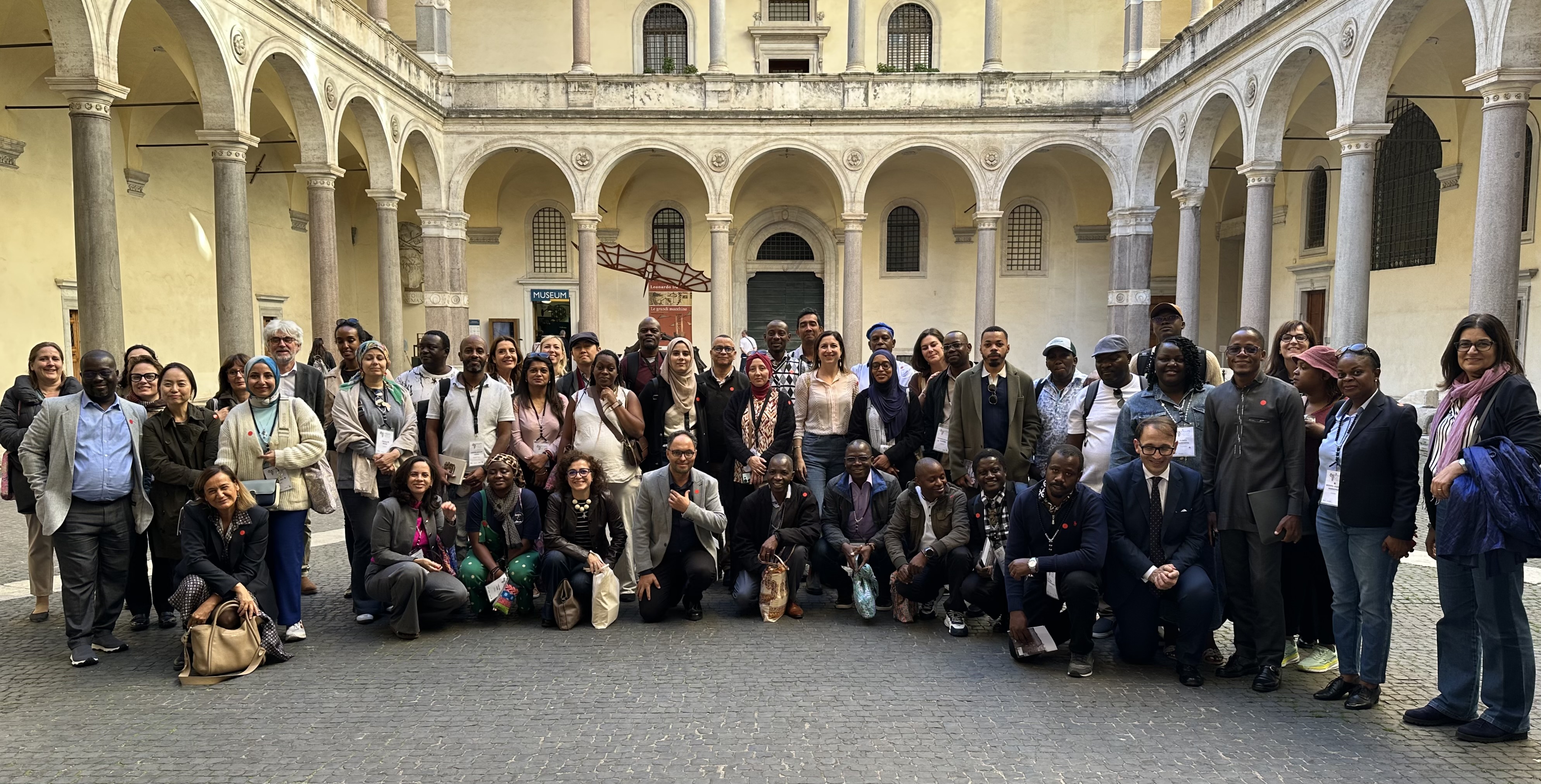The World Heritage in Africa: Fostering Practitioners for Nomination Processes and Strategies (WHAPS) project concluded with a three-day closing event in Rome from 3 to 5 November 2025, celebrating participants’ achievements and consolidating a growing network of heritage professionals across Africa and Italy. This nine-month initiative was led by ICCROM and the Scuola nazionale del patrimonio e delle attività culturali (Scuola), with the support of the Italian Ministry of Culture.
Thirty heritage practitioners from 26 African countries and Italy participated in the programme, which focused on strengthening capacities for World Heritage processes, including nominations, management, and impact assessment. The closing event offered an opportunity to reflect on the knowledge gained, partnerships forged, and pathways for continued collaboration.
Day one: opening ceremony and showcasing achievements
The programme opened at the historic Palazzo Poli – situated behind the Trevi Fountain – with representatives from Italian and international institutions, including the Italian Ministries of Culture and Foreign Affairs, UNESCO, IUCN, the Ecole du Patrimoine Africain (EPA), Great Zimbabwe University, and the African Site Managers Network. Great Zimbabwe University hosted the project’s opening forum in March 2026 at the World Heritage site of the Great Zimbabwe National Monument.
The morning featured an International Symposium, certificate presentations, and exchanges on heritage governance and international cooperation.
In the afternoon, participants shared the outcomes of their work during a poster exhibition, highlighting challenges faced at their sites and innovative approaches to improving conservation and management.
Day two: learning from Rome’s World Heritage
Participants explored part of the World Heritage site of the Historic Centre of Rome, the Properties of the Holy See in that City Enjoying Extraterritorial Rights and San Paolo Fuori le Mura on the second day. At Palazzo Braschi, the UNESCO Site Office of the Capitoline Superintendence for Cultural Heritage of the Municipality of Rome provided insight into the management and shared governance structure between Italian and Holy See institutions to safeguard this transboundary World Heritage site.
Guided visits to the Palazzo della Cancelleria, organized with the Vatican Museums, and to the Sacred Area of Largo Argentina, further provided hands-on experience for managing living heritage in urban settings. The day concluded at the ICCROM Library, the world’s leading conservation library, where participants explored resources supporting research and professional development.
Day three: reflection and forward vision
Hosted at the Regional Park of the Appia Antica, the final day focused on reflection and forward planning. Collaborative sessions, visually documented by NABA (New Academy of Fine Arts) students, allowed participants to discuss lessons learned from the nine-month project, as well as follow-up actions, and recommendations for the future. Talks highlighted challenges in implementing the World Heritage Convention within African contexts and explored ways to make processes and frameworks more relevant to local priorities.
A Stronger Network for Africa’s World Heritage Future
The WHAPS programme reflects ICCROM’s ongoing commitment to strengthening the capacities of African professionals and institutions. By supporting sustainable approaches to identifying, conserving, and managing heritage, it contributes to advancing community development and social well-being.
As WHAPS concludes, the network of practitioners, universities, heritage institutions, and national authorities stands as a key legacy. Participants leave equipped with enhanced skills, a community of practice, and a shared commitment to advancing the protection of natural and cultural heritage across Africa.




